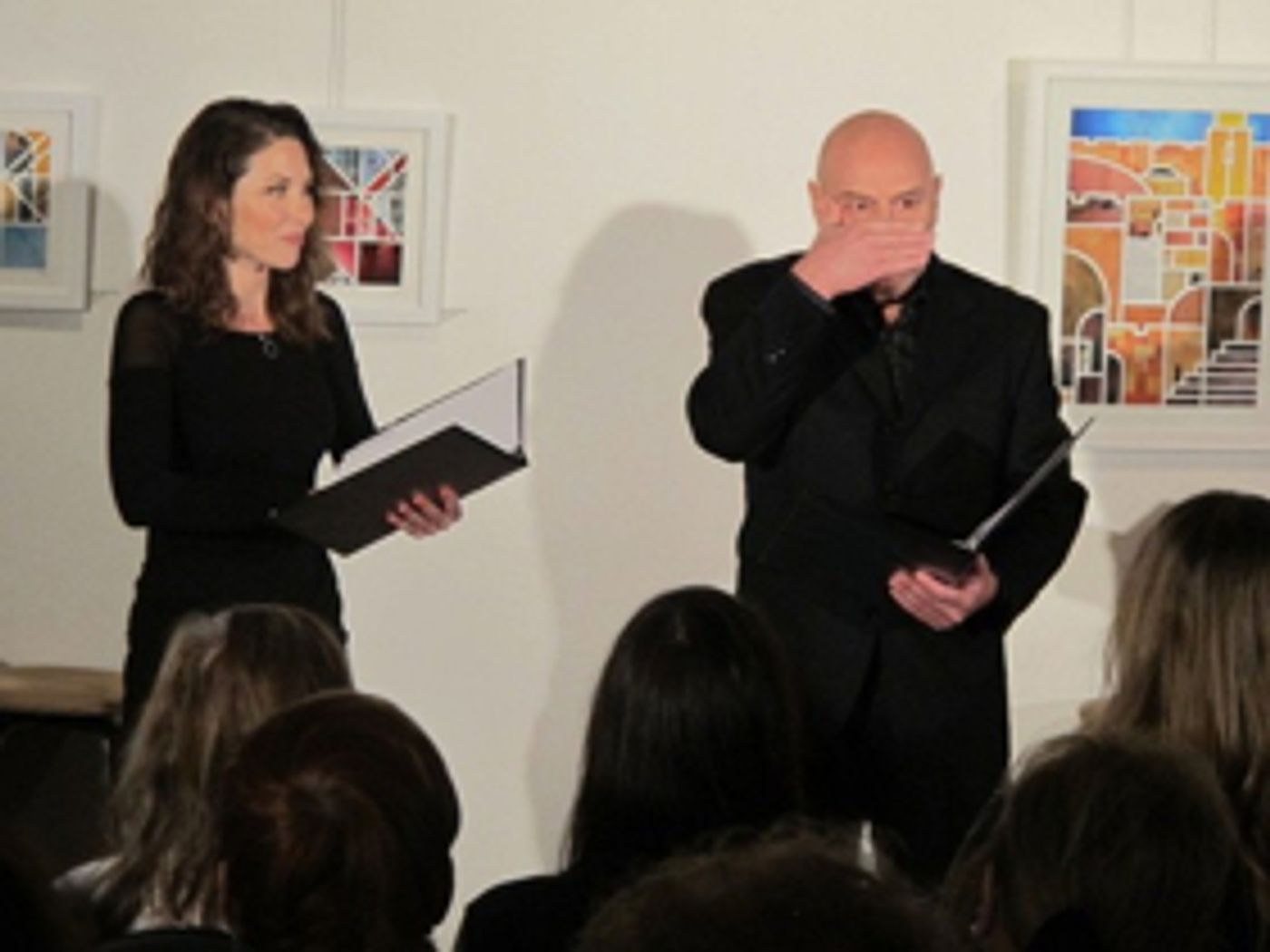The Cold War Gets Hot at Jewish Women's Theatre

Jewish Women's Theatre (JWT) and the Wende Museum in Culver City have teamed up to create a festive and educational evening that includes opportunities to survey the Museum's current exhibits and to watch a performance of JWT's critically acclaimed show Past & Present: Russian Jewish American Stories.
The event will be held Sunday, November 11 and will begin with a private Museum viewing and reception at 5 p.m., followed by a performance and Q&A at 6 p.m. The Wende is located at 10808 Culver Boulevard in Culver City 90230. Tickets are $50. For more information, visit: www.jewishwomenstheatre.org
The Wende, which is German for "turning point" or change, was established to collect and preserve artwork, artifacts and personal histories from Cold War-era Eastern Europe and the Soviet Union relating to the period leading up to and following the fall of the Berlin Wall.
"The Wende is a beautiful venue to reprise one of our most popular shows and to give a new audience an opportunity to hear stories of Russian-speaking American Jews in a setting that will surely bring back memories to many of our guests and enlighten others," said Ronda Spinak, JWT's artistic director.
Past & Present: Russian Jewish American Stories will feature professional actors retelling personal narratives of Jews, born in the former Soviet Union, and now living in America. There are stories of confusion, loss, anti-Semitism, and the difference in opportunities for Jews in each country. America does not discriminate by religion or class.
"In the former Soviet Union, Jews were distinctly third-class citizens, and denied jobs, education and other advantages afforded Soviet citizens," added Spinak. "The stories in Past & Present speak of the bravery needed to live there and the courage needed to leave."
One man wrote, "I am angry that they lied to me all my life; that they denied to me the right to be a first-class citizen. I was a patriot. I was passionate. I was a Communist. And yet, they never gave me a chance."
"In many ways, the term 'Russian Jew' all by itself is an oxymoron. How can you be a Jew in a country that has outlawed religion?" asks Spinak. "The quest to understand Judaism when there was no such thing in their world, is a recurrent theme in our show and on the minds and in hearts of many Former Soviet Union Jews."
Another story tells of the arrest of two young Jewish girls who got hungry and picked some peaches to eat while on a hike in the Ukraine. Unfortunately, their innocent theft was witnessed by a police officer and they feared for their lives in what they had been told was a "Jew-eating" country. But they were allowed to go free and the reason why will delight audiences.
Another story compares childrearing practices between "tough Russia and coddling America." Another woman tells how she was headed for medical school when she met a man who had received permission to emigrate to America. If she went with him, her road to her career dream would take lengthy and unexpected turns.
Perhaps the most intriguing story, written by Nadia Kalman, tells of a man who woke up one morning to find that his nose was missing. His quest to find it is a humorous metaphor for the losses one feels when being a stranger in a new country.
In addition to seeing Past & Present: Russian Jewish American Stories, guests will get to view two new exhibits at the Wende Museum. The first is titled War of Nerves: Psychological Landscapes of The Cold War. Dr. Joes Segal, Chief Curator at the Wende explains, "Our new exhibit examines different responses to the psychological landscapes in East and West. It examines different responses to the then frightening new prospect of nuclear war."
A second exhibit, Red Shoes: Love, Politics, and Dance during the Cold War focuses on the culture that flourished despite political differences.
"During the 50's and 60's, each side invested considerably in cinema, theatre, music, dance and the visual arts, and in public relations promoting creative works. All these efforts were designed to show their side's cultural supremacy," Segal explains.
JWT's special Wende Museum performance and Museum-viewing event will be held Sunday, November 11 and will begin with a private opportunity to tour the museum and a reception at 5 p.m., followed by a performance and Q&A at 6 p.m. The Wende is located at10808 Culver Boulevard in Culver City 90230. Tickets are $50. For more information, visit: www.jewishwomenstheatre.org
Videos

